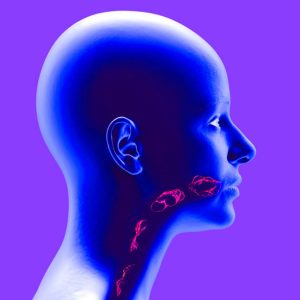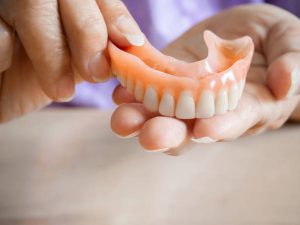One of the most stealthy threats to our health comes from a condition that often remains unnoticed until its advanced stages: oral cancer. Yet, its impact on lives is anything but silent. With thousands falling prey to this illness annually, the significance of screenings cannot be overstated. These preventative measures are crucial for interception at early stages where the chances of successful treatment skyrocket.
Deciphering the Signs of Oral Health Troubles
Contents

Accounting for a significant number of head and neck cancers, oral malignancies involve the uncontrolled growth of anomalous cells within various regions of the mouth and throat. High-risk activities include tobacco use in any form, excessive alcohol consumption, and repeated sun exposure without protection. Importantly, anyone can fall victim to this disease.
Symptoms might not scream for attention; they can be as mild as a sore that doesn’t heal or a persistent sore throat. Regular dental visits are more than just a part of oral care—they are a lifeline, capable of unveiling ominous signs that might be mistaken for harmless irregularities. The statistics highlight urgency; the 5-year survival rate for early detected oral cancer surges in comparison to later stages.

Conducted typically during standard dental appointments, an oral cancer screening is an exercise in vigilance, an opportunity to catch unwelcome changes early. Dentists have a toolbox of non-invasive procedures at their disposal, which include a thorough examination of your oral cavity and palpation to detect any lumps. This practice isn’t reserved for those with known risks—it’s a precaution that benefits all, especially those over the age of 40.
Technologies have evolved, providing dentists with advanced instruments like special lights capable of revealing hidden abnormalities. These developments uplift the screening process, offering a more comprehensive analysis of oral health. Dentists’ expertise is pivotal to this early interception, essentially making a routine visit a potentially life-saving event.
Advantages of Timely Intervention

Early intervention serves as the front line against the progression of cancer. The idea is straightforward: the sooner an anomaly is detected, the more effective the treatment, and the higher the odds of beating the disease. This not only has a profound effect on survival rates but also mitigates the severity of the required treatments, which can have a wide-ranging impact on one’s quality of life.
Screenings impart countless benefits, from averting severe health complications to reducing financial and systemic healthcare strains. But perhaps the most profound benefit lies in the peace of mind and emotional relief it offers to individuals and families alike. It’s an emotional anchor, a reassurance that the specter of advanced-stage cancer is being kept at bay through proactive steps.

Hesitations and a shortfall in understanding can stand as towering impediments to consistent screening compliance. The task of the healthcare community is monumental—imbuing potential patients with an awareness of oral cancer’s severity through education and dispelling any myths that swirl around screening processes. Clear, empathetic messaging can dismantle the walls of trepidation and misinformation, nudging people towards proactive health management.
Outreach campaigns and local health endeavors play a pivotal role in the edification crusade. These initiatives shed light on why regular screenings are non-negotiable and strip down the complexity often associated with medical procedures, making them approachable and transparent. This level of education is a linchpin in transforming community attitudes, transforming each informative exchange into a potential life-preserving intervention.
Tackling the Hurdles in Diagnostics

The journey to impeccable oral cancer detection is not without its challenges. Disease markers can be elusive, often masquerading as benign conditions, and unequal access to healthcare resources can stymie efforts to address this imbalance. In the thick of these challenges stands the unwavering resolve of healthcare workers—steering patient education pathways and anchoring their strategies in improved health outcomes.
A synergy between patient literacy and professional commitment builds the roadway to significant strides in oral health. The ideal scenario would see a world with fewer hurdles where early detection is commonplace and oral cancer loses its sinister edge. Ambitious it may be, but every healthcare victory starts with addressing the basics—access, understanding, and unwavering support for each individual patient.
The pursuit of enhancing diagnostic techniques is unending. Improved accuracy and accessibility of screening methods remain a priority, paving the way for more lives saved and concerted strides towards efficient early cancer detection. The evolution of these techniques is incremental but they hold the promise of a future where oral cancer is no more a formidable adversary.
Inspirational Tales of Early Detection

Numbers pale in comparison to the stories of those who have had their lives transformed by early oral cancer detection. These narratives form the fabric of the mission against this disease—each account of survival a beacon for the efficacy of regular screenings. It’s a cascade of encouragement, spurring on a march towards vigilance and proactive healthcare.
The Power of Proactive Healthcare

Oral cancer screenings are more than just an item on a health checklist; they’re guardians on the frontier, ensuring that any threats are caught before they escalate. This article’s message is a rallying cry to prioritize oral health and to view screenings as an ally in the quest for longevity. The call to action is simple and lifegiving: make regular screenings a staple, and spread the word about their lifesaving potential.

